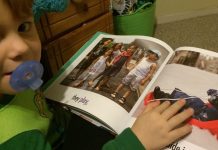 As I write this, I am dumbfounded that we are only one month away from 2024. I think we can all collectively agree that this year ZOOMED by. December famously starts the hustle of the “holiday season”— there are gifts, gatherings of all kinds, and kids are on their Winter Breaks. This can often be a very joyous time of year. As my best friend always says, however, two things can exist simultaneously. While this season can bring wonderment and excitement, it is also incredibly stressful for various reasons. Let’s not forget to add a razzle-dazzle of seasonal affective mood changes because it is midnight at 4:30 pm. Oof. One of my favorite memes on Instagram says that December is when anxiety switches from “regular” to “festive.” There are many areas of focus when it comes to holiday stress, but today’s edition of “How to handle holiday stressors” will feature my very good friend, BOUNDARIES.
As I write this, I am dumbfounded that we are only one month away from 2024. I think we can all collectively agree that this year ZOOMED by. December famously starts the hustle of the “holiday season”— there are gifts, gatherings of all kinds, and kids are on their Winter Breaks. This can often be a very joyous time of year. As my best friend always says, however, two things can exist simultaneously. While this season can bring wonderment and excitement, it is also incredibly stressful for various reasons. Let’s not forget to add a razzle-dazzle of seasonal affective mood changes because it is midnight at 4:30 pm. Oof. One of my favorite memes on Instagram says that December is when anxiety switches from “regular” to “festive.” There are many areas of focus when it comes to holiday stress, but today’s edition of “How to handle holiday stressors” will feature my very good friend, BOUNDARIES.
Boundaries (along with some other clinical terms and diagnostic labels) should be the buzzword of 2023. I love this for us, though. There is much more onus on what it means to have boundaries, how to implement them, etc. Boundaries are forms of self-care and self-love in action. Particularly as it relates to motherhood, there is a significant focus on how we best care for ourselves due to all the proverbial glass and rubber balls we juggle every second of the day. Have no fear; I will talk about how we, as mothers, need to take care of ourselves by establishing and honoring our boundaries this holiday season. BUT, for now, I want to talk about how we respect our children’s boundaries.

There are a TON of podcasts and books related to boundaries and their implementation. My Boundaries manual is “Set Boundaries: Find Peace: A Guide to Reclaiming Yourself” by Nedra Glover Tawwab. I was inspired to write about this topic due to her work. Mainly because I needed more help establishing my boundaries (both personally and professionally). Honestly, we all could use more assistance in this area. Some of us more than others and at varying times in our lives.
This introspection made me think about how I want to respect Samuel’s (my son’s) boundaries as he navigates becoming his own person. Clinically, I see children and adolescents whose parents/guardians do NOT respect their boundaries. Mainly because some adults do not believe kids have them. But here’s the thing: kids (and when I say kids, I mean 18 and younger) DO have boundaries. It’s when adults show or tell them that it is okay not to have them by:
- Dismissing the concerns
- Ignoring
- Ridiculing/guilting the child for the voiced concerns
- Dishonoring our boundaries
The holidays are chockful of opportunities where this happens. Areas where we may see this include expectations from others about what our children and teens are eating, what they are wearing, and, oh, here’s one: WHO THEY ALLOW IN THEIR PHYSICAL SPACE. I say this with love: we must stop guilting or forcing our kids to display physical affection when they are uncomfortable or have voiced discomfort. Our kids are not responsible for the feelings of adults, especially when it pertains to this.
So, the $64,000 question remains:
how do we help honor our kids’ boundaries?
- Respect their feelings:
- Validate and acknowledge his/her feelings. Help them understand that it is okay to feel a certain way, but also teach them appropriate ways to express and manage their emotions.
- Encourage independence:
- Allow him/her to make age-appropriate choices and decisions. Offering choices helps our kiddos to feel as though they have a voice. This additionally helps them to develop a sense of autonomy and responsibility.
- Use positive praise/reinforcement
- Praise positive behavior, reinforcing that respecting boundaries leads to positive outcomes.
- Encourage open communication
- Create an environment where he or she feels comfortable discussing concerns, questions, or mistakes. Use these opportunities for learning as a means to solve problems as a unit.
- MODELING
“The best way to teach children is to model the behavior you want to see.” – Anonymous.
Well, here I go again, talking about how important it is to model the behaviors we wish to see in our children. Listen, most of my advice on behavioral change in children will come down to this. How are WE, as mothers and responsible adults, honoring OUR boundaries? Here are a few things that may resonate with you:

Time Management:
There is so much pressure to attend to every single thing. Social media then piles on with expectations of motherhood during this season (imposter syndrome, anyone?). It’s time to be honest and admit we cannot do everything. A lack of self-discipline is symbolic of the lack of self-boundaries, and time management requires discipline. Take some time to respond to an event request. Then, use that time to ensure you aren’t physically and mentally overbooking yourself. Our kids see and can feel this type of stress. We want to make sure that we aren’t overcommitting them as well. This may also mean creating some of the traditions that work best for you and YOUR family, not others. And dare I mention the concept of delegation? Despite learning this throughout my nursing career, I STILL struggle with asking for help. But how can we, in good conscience, teach our children to ask for help when we don’t?
How YOU handle when your boundaries are dishonored:
This encapsulates a lot of different topics and areas. Still, some include how you opt to raise your children, if you already have a child or children, when you plan to have MORE children, how you spend your time, your WEIGHT (loss or gain), political/religious discussions, or INSERT YOUR EXAMPLE. This is not an exhaustive list, but these key examples often surface during the holidays and subsequent gatherings. Some options for tactfully responding include*:
- responding with a question: “Interesting question. What makes you ask that?”
- being direct and consistent
- restate your clear boundaries: “I do not like when people talk to me about [INSERT INAPPROPRIATE TOPIC HERE].
*These gems are from Tawwab’s book. Seriously, run and do not pass go when getting this book. She may be the Queen of boundaries.
We all know we can’t change people or control their reactions, BUT we can control how we deal with others, what we accept, our reactions, who we allow in our lives, and our perspectives. Knowing that we can control our attitudes and views in an utterly uncontrolled world is refreshing. THIS is self-care in action. And what a gift to share and teach our children such a valuable skill, not only during the holidays but year-round.
I hope you all have beautiful holidays full of joy, connection, and wellness.










